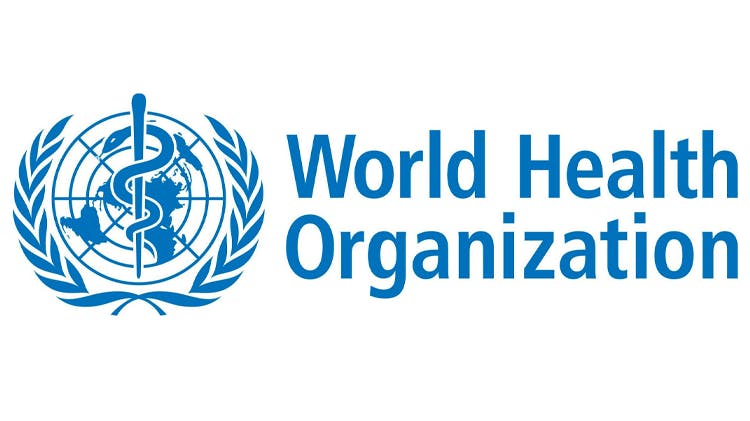The facts about ibuprofen and COVID-19

The facts about ibuprofen and COVID-19
To Our Medical Professional Community,
At GSK Consumer Healthcare, we understand your need to have the correct information to feel confident in your treatment decisions, and to address your patients’ questions and concerns. That’s why we are sharing these updates regarding ibuprofen and COVID-19.
The evolving discussion around ibuprofen use and the COVID-19 vaccines
The appropriate use of antipyretics/analgesics, like Advil® (ibuprofen), is recommended by public health authorities to help relieve symptoms that may be experienced following vaccination.1,2 This is consistent with the fact that in the COVID-19 vaccine studies, participants were allowed to use antipyretics/analgesics to treat symptoms.3-6
Following shortly after the availability of the COVID-19 vaccines in the US, an article published on Best Life Online made claims that ibuprofen and acetaminophen could make the COVID-19 vaccine less effective.7 The article cites a University of California Irvine Q&A advising people against taking over-the-counter (OTC) pain relievers before vaccination, but that they can be taken for symptom relief after vaccination.8
Subsequently, Dr. Paul Offit, a member of the FDA vaccine advisory committee, said: “When you get a COVID-19 vaccine–one of these two mRNA vaccines made by Pfizer or Moderna–if you choose to take an anti-fever, anti-inflammatory medicine, know that you will probably be lessening your immune response to that vaccine. So, you’re only really hurting yourself by taking those types of medications.”9
In reality, there are limited clinical data on how antipyretics/analgesics affect the immune response to vaccines. What’s more, immune response can vary based on type of vaccine and other factors. However, the clinical trials conducted to prove the safety and efficacy of COVID-19 vaccines offer some insight. Study participants were allowed to use antipyretics/analgesics, like ibuprofen, to treat mild side effects after injection. This was the case in the Pfizer-BioNTech and Moderna clinical trials, which showed efficacy of over 94%,3,4 implying the use of antipyretics/analgesics, like ibuprofen, did not impact the immune response to the vaccine.
Health authorities and scientific professional societies in the US, Canada, and Europe, including the Centers for Disease Control and Prevention (CDC), came out with a strong and consistent recommendation that antipyretics/analgesics, such as ibuprofen (Advil®) or acetaminophen, can be taken for pain or discomfort caused by the COVID-19 vaccine.1,2 People should carefully read and follow the instructions they receive at the time of COVID-19 vaccination.
For more information, please see FAQs about managing the side effects of the COVID-19 vaccine.
Ibuprofen and COVID-19
Doctors and scientists agree that COVID-19 patients can use antipyretics/analgesics, like Advil® (ibuprofen), to treat pain and reduce fever.*Advil® is a leading over-the-counter fever and pain reliever that has been used safely and effectively for over 35 years in 40 countries.* At GSK, the makers of Advil®, safety remains our number one priority, and we support the scientific pursuit of evidence for the safe use of Advil®.
The scientific consensus is clearAntipyretics/analgesics, like Advil®, remain safe to use as directed. The current scientific literature does not show that antipyretics/analgesics make COVID-19 health outcomes worse, and the world’s leading health authorities have confirmed there is no evidence to recommend that COVID-19 patients avoid antipyretics/analgesics, like Advil® (ibuprofen).
There is no scientific evidence that directly links the use of antipyretics/analgesics, like Advil®, with worsened outcomes in patients suffering from COVID-19 infection.
How the controversy startedA letter to the editor published in The Lancet Respiratory Medicine in March 2020 hypothesized a connection between ibuprofen and worsening symptoms of COVID-19.10
This theory regarding the use of nonsteroidal anti-inflammatory drugs (NSAIDs) with worsening COVID-19 symptoms is without clinical evidence, and has caused considerable confusion and controversy within the medical community.
Because consumer safety and providing clear, evidence-based guidance are our priorities, we are closely monitoring independent statements from respected public health authorities and medical experts. For more information, please see our FAQs about managing symptoms of COVID-19.
*When used as directed.
We have been constantly monitoring and evaluating research papers published in a broad range of scientific or academic journals around the world.
Recent research publications (March 2020–January 2021):
Annals of the Rheumatic Diseases, January 2021–No overall increased risk of COVID-19 related death associated with current prescribed NSAID use. In two similarly designed studies, researchers studied prescribed NSAID users and non-users and “...found no evidence of a harmful effect of routinely prescribed NSAIDs on COVID-19 related death.” They separately evaluated a general population (Study 1) and population with rheumatoid arthritis or osteoarthritis (Study 2); NSAID users and non-users did not have a difference in risk for COVID-19 related deaths when adjusted for differences between them in the two study populations. The researchers concluded that “…people currently prescribed NSAIDs for their long-term conditions should continue their treatment as part of their routine care.”11
PLOS Medicine, September 2020—A Danish study concluded that there was no association between NSAID use up to 30 days before testing for COVID-19 and mortality within 30 days or adverse outcomes within 14 days, including hospitalization, ICU admission, and ventilation, for COVID-19 patients, and that NSAIDs do not lead to more severe coronavirus disease.12
American Journal of Therapeutics, July/August 2020–Researchers found no supporting evidence to discourage the use of ibuprofen although authors raised a concern regarding the safety of ibuprofen use because of its potential role in increasing ACE-2 receptor levels within the Renin–Angiotensin–Aldosterone system. However, available data from limited studies show administration of recombinant ACE2 improves lung damage caused by respiratory viruses, suggesting ibuprofen use may be beneficial in COVID-19 disease.13
Archives of Clinical Infectious Diseases, July 2020–While this study found a “significant relationship” between the history of ibuprofen consumption and the symptom severity of COVID-19 and the mortality rate of COVID-19 patients in Iran, it is important to note the researchers did not study OTC ibuprofen and that the conclusion was primarily based on hospitalized patients with severe COVID-19 and underlying diseases such as hypertension, kidney disease, and heart disease, who had been admitted to the ICU or died. The authors reported that the study was limited by its low sample size and inaccuracy of the daily dose of NSAIDs.14
Headache, July 2020–A study concluded that there is no specific evidence at this time against the use of NSAIDs in patients with or without COVID‐19. Authors recommend a patient should be assessed for any other chronic diseases, underlying or pre-existing illnesses or conditions (i.e., co-morbid medical conditions) that may limit the use of NSAIDs and recommend a discussion of risks and benefits with all patients prior to prescribing NSAIDs.15
British Dental Journal, July 2020–Authors concluded that ibuprofen can be used appropriately for dental procedures, and that there is no guidance in the literature suggesting that changes should be made to analgesia regimes for dental patients with or without COVID symptoms nor to support avoiding ibuprofen in this group.16
British Pharmacological Society, July 2020—The authors noted that epidemiological studies have suggested potential benefits of NSAID use on reducing the risk of development of severe disease in COVID-19 patients while also raising a warning about ibuprofen use in COVID-19 patients.17
JAMA Network Open, July 2020—Researchers found that the currently available data, including the primary endpoints in their study, do not seem to support strong recommendations against using NSAIDs in patients with viral pneumonia.18
Clinical Infectious Diseases, July 2020—Authors of an observational study from South Korea suggested that the harms associated with NSAID use may outweigh their benefits for patients with COVID-19 and therefore should be used with caution. Researchers looked only at patients hospitalized with COVID-19 who were prescribed prescription-strength, not OTC, NSAIDs in the 7 days before and including their inpatient hospitalization, and it is unclear if the prescribed NSAIDs were part of their COVID-19 treatment courses or for one or more underlying serious health conditions.19
Clinical Microbiology and Infection, June 2020—A peer-reviewed, retrospective cohort study of 403 patients with COVID-19 from Shamir Medical Centre, Israel, concluded that in the studied cohort of COVID-19 patients, “ibuprofen use was not associated with worse clinical outcomes, compared with paracetamol [acetaminophen] or no antipyretic.” In patients with fever, there was no difference in clinical outcomes between ibuprofen and paracetamol [acetaminophen] users.20
Chest, July 2020–An early study in Vancouver, BC, Canada, concluded that the current epidemiologic evidence is not strong enough to infer a causal link of a harmful effect of ibuprofen in patients with COVID-19, and we need to be cautious when drawing conclusions from evidence that is derived from mechanistic or theoretical pharmacology, as they are not always corroborated with data from clinical trials. In this study, the authors did advise that patients use acetaminophen monotherapy for fever reduction in a patient with COVID-19 and add ibuprofen if acetaminophen alone cannot reduce the fever.21
When used as directed, Advil® is safe and effective for relieving pain and reducing fever associated with the COVID-19 vaccine and/or COVID-19 infection based on general medical consensus.

“At this time, FDA is not aware of scientific evidence connecting the use of NSAIDs, like ibuprofen, with worsening COVID-19 symptoms. The agency is investigating this issue further and will communicate publicly when more information is available."22

“Based on currently available information, WHO does not recommend against the use of ibuprofen. We are also consulting with physicians treating COVID-19 patients and are not aware of reports of any negative effects of ibuprofen, beyond the usual known side effects that limit its use in certain populations. WHO is not aware of published clinical or population-based data on this topic."23
A legacy of evidence-based safety24
Advil® is a well-established medicine that safely and effectively reduces fevers and provides pain relief when used as directed.
- It has been used by millions of consumers across 40 markets for more than 3 decades
- It has been extensively studied and is strictly regulated to ensure its use complies with local healthcare authority requirements
- Safety is supported by over 30 years of monitoring and postmarketing surveillance reporting adverse events to the FDA
- It has been extensively used to relieve some of the symptoms of influenza (pain and fever)
Moving forward in these times
Consistent with the current recommendations of the major public health organizations, GSK Healthcare recommends that you speak directly with your patients regarding their individual treatment needs.
In addition, without a scientifically based consensus within the medical community or a proven mechanistic rationale, we hope that you continue to feel confident about using antipyretics/analgesics, like Advil®, as a fever and pain reducer to provide comfort and care for your patients with COVID-19.
We will continue to monitor the situation and provide you with updates as they come in. As always, we remain committed to providing balanced information about our medicines, maintaining transparency about our work, operating with integrity, and always putting the interests of patients first.
Thank you and stay safe.
FAQs about managing symptoms of COVID-19
Sign up
For news, updates, and more, click the link below to sign up and be on our mailing list